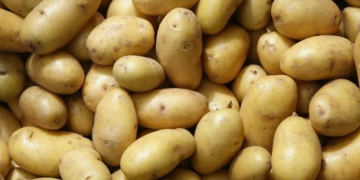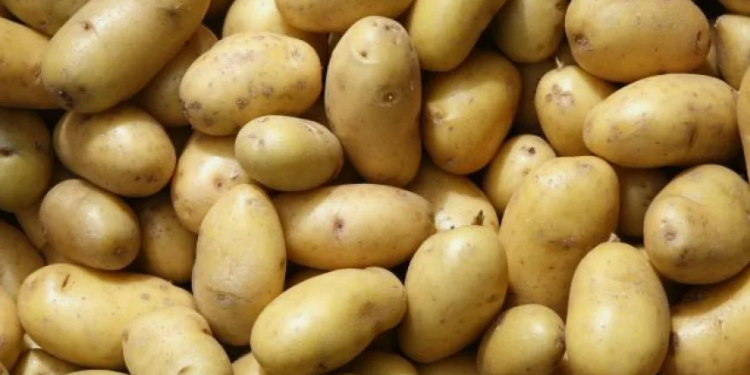#Potatovarieties #Belarusianagriculture #Foodsecurity #Plantbreeding #Agriculturalinnovation #Potatoyield #Cropscience
Discover how Belarusian scientists at the Institute of Plant Breeding in Shchuchin are revolutionizing potato farming with elite varieties such as “Pershatsvet,” “Skarb,” “Sapphire,” and “Lekar.” Explore the latest data on their record-breaking potato yields and their invaluable contribution to the country’s food security.
In the heart of Belarus, the Institute of Plant Breeding in Shchuchin is making remarkable strides in the field of potato cultivation. For many years, their dedicated scientists have been focused on breeding domestic potato varieties that outshine imported counterparts. This year, their experimental fields are yielding a record-breaking harvest of up to 500 quintals per hectare.
Anastasiya Horbach, a resident of Shchuchin, exemplifies the mutually beneficial cooperation between the institute and local communities. She sets aside her daily tasks to join the potato harvest, ensuring her family’s winter supply of potatoes.
Anastasiya Horbach, Shchuchin Resident: “The harvest, as you can see, is bountiful. Some gather larger potatoes, while others collect seedlings. Working here ensures that you and your family will have more than enough potatoes for the winter.”
The Institute of Plant Breeding has been diligently breeding new potato varieties for years. These varieties, exclusively elite and super-elite, are of Belarusian origin, ranging from the well-known “Skarb” to the exotic “Sapphire” and “Lekar.”
Nina Khokh, Head of the Potato Department at the Grodno Zonal Institute of Plant Breeding, National Academy of Sciences of Belarus: “Currently, we are harvesting original seed material. We receive 50-60 tons of potato seed material daily, which is then sorted and supplied to agricultural enterprises and farms across the country. We also have established partners in the Russian Federation.”
Agricultural scientists are experimenting with potato varieties in terms of their maturation periods. Early, mid-season, and late varieties all exhibit remarkable yields.
The institute has already harvested an early Belarusian variety named “Pershatsvet.” In terms of yield, it can compete with foreign varieties, producing up to 500 quintals per hectare. Moreover, in terms of taste, it surpasses imported counterparts.
All the harvested potatoes are transported to a specialized storage facility. Last year, the facility underwent modernization, increasing its storage capacity from 2,000 to 3,000 tons and equipping it with state-of-the-art equipment. Potatoes are gradually cooled to 2-3 degrees Celsius in specialized chambers, ensuring their quality until the next harvest.
Regina Babich, Manager of the Potato Storage Facility at the Grodno Zonal Institute of Plant Breeding, National Academy of Sciences of Belarus: “This chamber houses 400 tons of potatoes and is kept at a temperature of 16 degrees during the healing period. The temperature decreases by one degree with each passing period.”
In addition to mass production of potato seeds, the institute actively works on creating entirely new potato varieties. These plants are initially grown in test tubes and then studied in field conditions for several years.
Maria Osovik, Head of the Agrobiotechnology Laboratory at the Grodno Zonal Institute of Plant Breeding, National Academy of Sciences of Belarus: “We collaborate with the Potato Research Center in breeding new varieties. They supply us with hybrids, which we study for two to three years. We assess their yield compared to our standards and then decide whether to classify them as new varieties or not.”
These hybrids represent the distant future of Belarusian potato farming. Meanwhile, the seed material currently harvested in Shchuchin will ensure the country’s food security as it plans to store over 5,000 tons of premium potatoes for the coming year.
The efforts of scientists at the Institute of Plant Breeding in Shchuchin are transforming Belarusian potato farming. Their dedication to breeding elite potato varieties, their commitment to innovation, and their contributions to food security are commendable. With record-breaking yields and superior taste, Belarusian potato varieties are not just competing with imports but setting new standards for the nation’s agriculture. As they continue their research and experimentation, the future of Belarusian potato farming looks brighter than ever.































